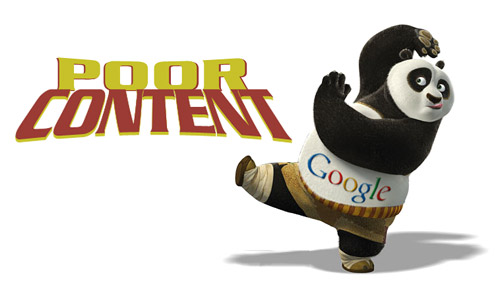Are you wondering what is SEO (search engine optimization) and how you can do it?
Search engine optimization represents the process of directing traffic from the free, organic search results on search engines. All major search engines such as Google, Bing or Yahoo have primary search results, where web pages and other content such as videos or local listings are shown and ranked based on what the search engine considers most relevant to users. So the question is – how to do SEO to my website? How can I be in top of Google’s searches? Well – this article is for you.
So, let’s get to the subject. You own a hotel or B&B. What must be done to be on the top in search results? Are there any keywords or titles you can use to improve your ranking?
Well, having a good title won’t help if your landing page has low quality content. Having many links won’t help if they are all low in quality.
What type of content do you publish? Are you posting pictures with rooms? Recipes? Are you providing important HTML clues that help search engines determine relevancy on your page?
With billions of web pages to sort through, looking only at some clues aren’t enough. More signals are needed to return the best pages for any particular search.
Search engines want people to perform SEO because it can help improve their search results.
In today’s article we are going to discuss the content subject and how your content needs to be.
Content is the king. So in order to create or post content on your website you must ask yourself some questions about the content you’re creating.
The content you’re posting is it well written? Most of the times when you are in a business niche, you will not find the best content and you have to create it. Besides creating the content you must pay attention how you are writing it. There are no excuses in having writing mistakes. Everything has to be perfect and well placed on page.
Do you have substantial quality content? Of course, besides writing an article or posting on your website/blog, you have to be sure of your content’s quality. High quality pictures are important to have.
Go beyond being a simple ad with the same information that can be found on hundreds of other sites. Provide a reason for people to spend more than a few seconds reading your page.
Have you researched the keywords people use to find your content? The most important SEO factor after creating good quality content is good keyword research.
There are a variety of tools that allow you to discover the specific ways that people may be searching for your content.
You want to create content using the right keywords, the actual search terms people are using to find you.
For example, a page about “hotel room service” might use some words to describe room services of a luxurious hotel or what hotels are offering in their room services. But a search engine might skip or not rank that page highly if people are instead searching for “can I order food in the hotel room?”. Your content needs to be written in the right ‘language’ – the language your customer or user is using when searching.
Does your webpage use words and phrases you hope they’ll be found for?
If you want your pages to be found for particular words, it’s a good idea to actually use those words in your content.
Think about the words you want a page to be found for, the words you think are relevant from your keyword research. Then use them naturally on the page.
Are your pages fresh and about “hot” topics?
Search engines love new content. That’s what I mean when I say “fresh”.
However, Google does have something it calls “Query Deserved Freshness (QDF)”. If there’s a search that is suddenly very popular versus its normal activity, Google will apply QDF to that term and look to see if there’s any fresh content on that topic. If there is, that new or fresh content is given a boost in search results.
If you’ve got the right content, on the right topic when QDF hits, you may enjoy being in the top results for days or weeks. Just be aware that after that, your page might be shuffled back in search results. It’s not that you’ve done anything wrong. It’s just that the freshness boost has worn off. Sites can take advantage of this freshness boost by producing relevant content that matches the real-time pulse of their industry.
Do you have images, local news, videos or other vertical content?
The other factors on this table cover success for web page content in search engines. But alongside these web page listings are also often “vertical” results. These come from “vertical” search engines devoted to things like images, news and video. If you have content in these areas, it might be more likely to show up within special sections of the search results page.
Not familiar with “vertical search” versus “horizontal search?” Let’s take Google as an example. Its regular search engine gathers content from across the web, in hopes of matching many general queries across a broad range of subjects. This is horizontal search, because the focus is across wide range of topics.
Google also runs specialized search engines that focus on images, news or local content. These are called vertical search engines because rather than covering a broad range of interests, they’re focused on one segment of interest spectrum.
Having content that performs well in vertical search can help you succeed when your web page content doesn’t. It can also help you succeed in addition to having a web page make the top results. So, make sure you’re producing content in key vertical areas relevant to you.
Is your content turned into direct answers within search results?
Search engines are increasing trying to show direct answers within their search results. Questions like “why is the sun yellow” or “how old is the Earth” might give you the answer without needing to click to a web page.
Where do search engines get these answers? Sometimes, they license them, such as menus, music lyrics, wiki answers, math calculations… Other times, they draw them directly off web pages, providing a link back in the form of a credit.
There’s some debates over whether having your content being used as a direct answer is a success or not. After all, if someone gets the answer they need, they might not click, and what’s the success in that? Well, as a reader we want to find the answer we searched for and finding an answer from you, it’s a sign of trust, which can help a site for other types of queries. Second, while there’s concern, there’s also some evidence that being a direct answer can indeed send traffic.
Is your content thin or shallow?
When you are creating the content you don’t need to have a long and boring content. Your writing can be short and concise. How? Well, depends of what content you’re creating. It depends on the topic you chose but try to avoid being shallow.
If you find this article useful – please let us know in the comments section bellow.








